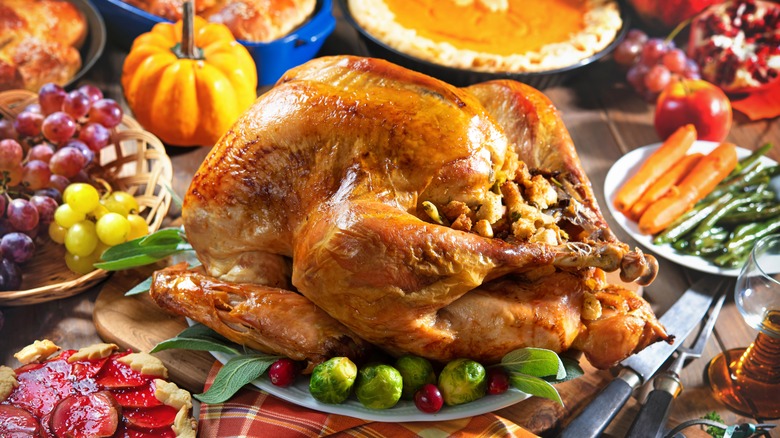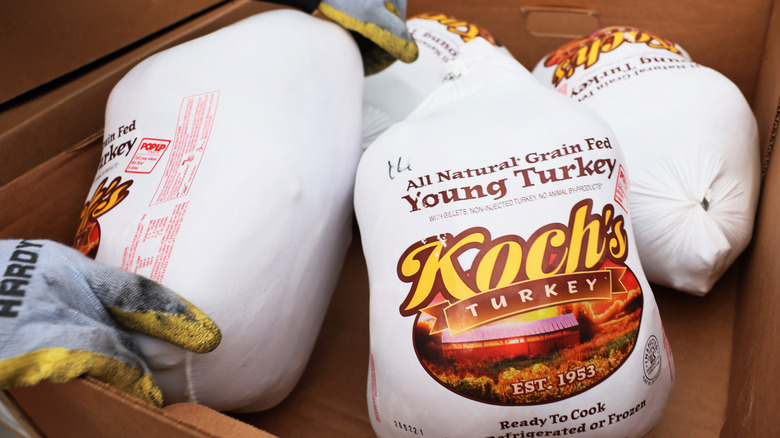The Big Thing To Avoid When Buying Turkey Breast For Thanksgiving
There's a lot of pressure when you host Thanksgiving, but perhaps no responsibility is greater than preparing the turkey. The centerpiece of the annual celebration can make or break your holiday meal, so you'll probably want to do your homework before diving in. There are lots of options for making your turkey. Deep frying or roasting? Dry seasoning or brining? To baste or not to baste? Should I listen to the little popper timer on the bird? And the answer to the last question is no (per How Stuff Works).
Most of the other questions come down to a matter of personal preference and taking measures to avoid basic pitfalls. For instance, The Spruce Eats recommends that if you aren't brining the turkey, you should still make sure to rub dry seasoning and salt over the bird — inside and out — and coat the skin in a layer of butter or olive oil to keep it moist and flavorful. However, there is one thing that America's Test Kitchen advises Thanksgiving hosts to avoid if at all possible while they're picking out their turkey, whether it be frozen or fresh, and that is the self-basting bird.
Baste it yourself
As the U.S. Department of Agriculture (USDA) explains, self-basting turkeys are "injected or marinated with a solution containing butter or other edible fat, broth, stock or water plus spices, flavor enhancers and other approved substances." These birds have been treated before purchase and must be labeled as such. The idea behind this type of poultry is that it will be moister and require less preparation work, which Serious Eats notes is effective. However, it can also lead the meat to have a bland, diluted flavor. America's Test Kitchen also suggests that a lot of the turkey's flavor is masked by these solutions and insists that if your only available turkeys are self-basting, you should absolutely skip the extra brining or salting steps as the meat will be far too salty when finished.
Another drawback to these types of turkeys, as Cooks Info explains, is that the solutions add weight, which is not accounted for separately on the turkey labels. That means you're paying an inflated price per pound for a turkey that might be up to 9% water weight. With turkey prices already higher this year due to inflation and the avian flu, you don't want to be paying meat prices for what could be over a pound of water in a 15-20 pound turkey.
If you're looking for a turkey that is already somewhat prepped, Serious Eats recommends going with a Kosher turkey, which will already be salted and seasoned but not overwhelmed by injected solutions.

